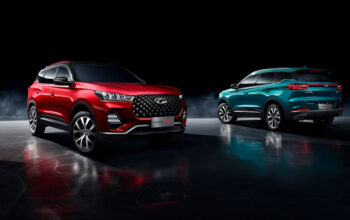In today’s dynamic automotive industry, car sales are influenced by a myriad of factors. The traditional considerations of price, performance, and brand loyalty have evolved, with new trends and technologies playing a major role in shaping consumer behaviour.
From economic conditions to environmental awareness, the factors that affect car sales are multifaceted. Let’s delve into some of the key drivers that influence car sales Hamilton in today’s market.
Economic Conditions
The state of the economy is a fundamental factor affecting car sales. Economic growth, inflation rates, interest rates, and consumer confidence all have a direct impact on the automotive market.
- Consumer Purchasing Power: When the economy is doing well, consumers have more disposable income and are more willing to invest in big-ticket items like cars. Conversely, in times of economic downturn, people tend to hold off on major purchases.
- Interest Rates: Interest rates set by central banks influence the pcost of borrowing. When interest rates are low, consumers are more likely to take out loans to buy cars, increasing sales. However, higher interest rates can deter potential buyers from financing a new vehicle.
- Inflation: Rising inflation affects car prices, manufacturing costs, and consumer buying power. Car manufacturers may face higher production costs, which can lead to price increases that affect consumer demand.
Technological Advancements
The rise of technology has revolutionised the automotive industry. Features like autonomous driving, electric vehicles (EVs), and connected car technology are increasingly shaping consumer preferences.
- Electric Vehicles (EVs): With governments pushing for greener alternatives, EVs are gaining popularity. Many consumers now look for eco-friendly vehicles, influenced by concerns over climate change and government incentives for buying electric cars.
- Autonomous Driving Technology: While fully autonomous cars are not yet mainstream, advancements in driver-assistance technologies like adaptive cruise control and lane-keeping assist are drawing consumer interest.
- Connectivity and Infotainment: Today’s consumers expect their cars to integrate seamlessly with their digital lives. Features like in-car Wi-Fi, smartphone integration, and voice control systems are now key selling points for many buyers.
Environmental Concerns and Regulations
The push for sustainability is reshaping the auto industry, with more consumers looking for eco-friendly options and governments imposing stricter emissions regulations.
- Environmental Awareness: Consumers are becoming increasingly conscious of their carbon footprint, leading to a growing demand for hybrid and electric vehicles. This shift is especially prominent among younger buyers who prioritise sustainability.
- Government Regulations: Many countries are enacting stricter emissions standards and even proposing bans on the sale of new gasoline and diesel cars within the next few decades. These regulations are pushing manufacturers to innovate and offer cleaner vehicles, which in turn influences consumer choices.
Fuel Prices
Fuel prices have a significant impact on car sales Hamilton, particularly in the segments of fuel-efficient cars and larger vehicles like SUVs and trucks.
- Higher Fuel Prices: When fuel prices rise, consumers tend to shift toward more fuel-efficient vehicles, including hybrid and electric cars. Conversely, when fuel prices are low, larger vehicles like SUVs and trucks tend to see an uptick in sales.
- Long-Term Cost Considerations: Buyers are now more aware of the total cost of vehicle ownership, factoring in not just the purchase price but also long-term fuel expenses. Fuel-efficient cars often appeal to those looking to reduce long-term costs.
Brand Reputation and Loyalty
Brand reputation continues to play a major role in car sales. Established automakers with a history of reliability, quality, and innovation often retain a loyal customer base.
- Consumer Trust: Consumers tend to trust brands with strong reputations for producing reliable and safe vehicles. A positive brand image, backed by customer reviews and industry accolades, can significantly influence purchasing decisions.
- Loyalty Programs: Automakers often offer loyalty incentives, such as discounts or special financing options for repeat customers. These programs help retain existing customers and encourage brand loyalty.
Marketing and Advertising
The way cars are marketed plays a crucial role in influencing sales. Car manufacturers and dealerships invest heavily in advertising to create brand awareness and appeal to specific consumer segments.

- Digital Advertising: With the rise of digital marketing, car manufacturers are increasingly leveraging online platforms to reach potential buyers. Social media, search engine advertising, and influencer partnerships are now common strategies for boosting car sales.
- Personalisation: Personalised marketing efforts, such as targeting ads based on consumer preferences and search histories, are helping automakers connect with buyers more effectively.
Consumer Trends and Preferences
Consumer tastes and preferences are constantly evolving, influenced by cultural shifts, lifestyle changes, and even social media trends.
- SUVs and Crossovers: Over the past decade, SUVs and crossovers have become some of the best-selling vehicles globally. Their versatility, spaciousness, and perceived safety appeal to a broad range of consumers, especially families.
- Urbanisation and Compact Cars: In contrast, urban buyers often prefer smaller, more fuel-efficient vehicles that are easier to manoeuvre and park in crowded cities.
- Luxury and Customisation: There is also a growing demand for luxury vehicles and personalised features. Many buyers now seek cars that reflect their personal style, with options for custom interiors, advanced tech features, and premium materials.
Supply Chain and Inventory Challenges
The automotive industry has faced supply chain disruptions, particularly in recent years, which have influenced car availability and sales.
- Chip Shortages: Modern cars rely heavily on semiconductor chips, and shortages have led to delays in production and limited availability of certain models. This has driven up prices for new and used cars alike.
- Global Supply Chain Disruptions: Events such as the COVID-19 pandemic have highlighted the vulnerabilities of global supply chains, impacting car production timelines and availability in many markets.
Final Words
Car sales in today’s market are influenced by a complex interplay of economic factors, technological advancements, environmental considerations, and shifting consumer preferences. As the automotive industry continues to evolve, understanding these factors is crucial for both manufacturers and consumers.
By staying attuned to market trends and technological innovations, car sales Hamilton buyers can make more informed decisions, while automakers can better position themselves to meet the changing demands of the modern market.




